Phonics skills development Normal Worksheets for Ages 5-9
6 filtered results
-
From - To
Enhance your child's reading proficiency with our "Phonics Skills Development Normal Worksheets" designed for ages 5-9. These engaging and interactive worksheets foster essential phonics skills through fun activities tailored to various learning styles. Our resources help children recognize sounds, blend them, and associate letters with words, all crucial for reading fluency. Each worksheet emphasizes playful learning, making phonics practice both effective and enjoyable. Whether at home or in the classroom, these printable worksheets serve as valuable tools for parents and teachers to support early literacy development. Get ready to watch your child thrive in their reading journey!
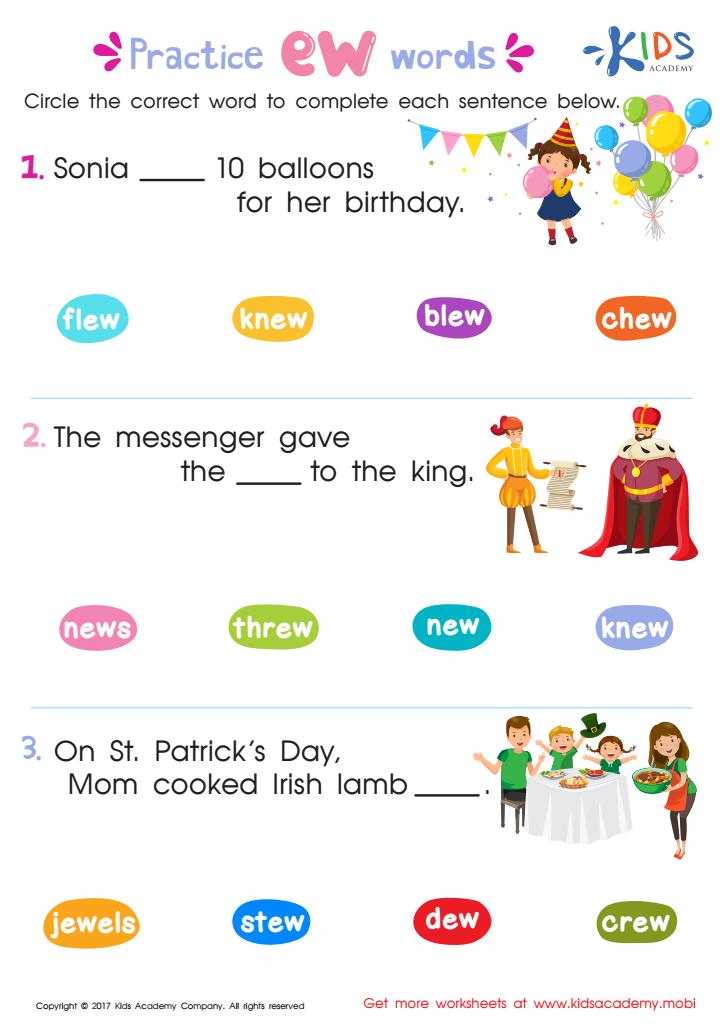

EW Words Worksheet
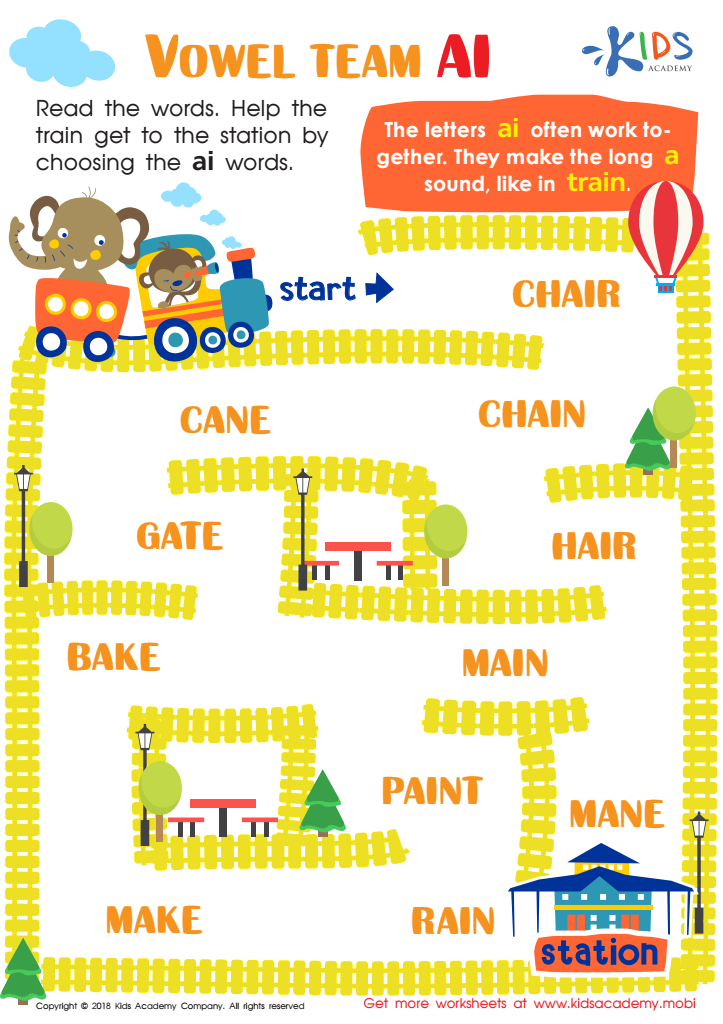

Vowel team ai Worksheet
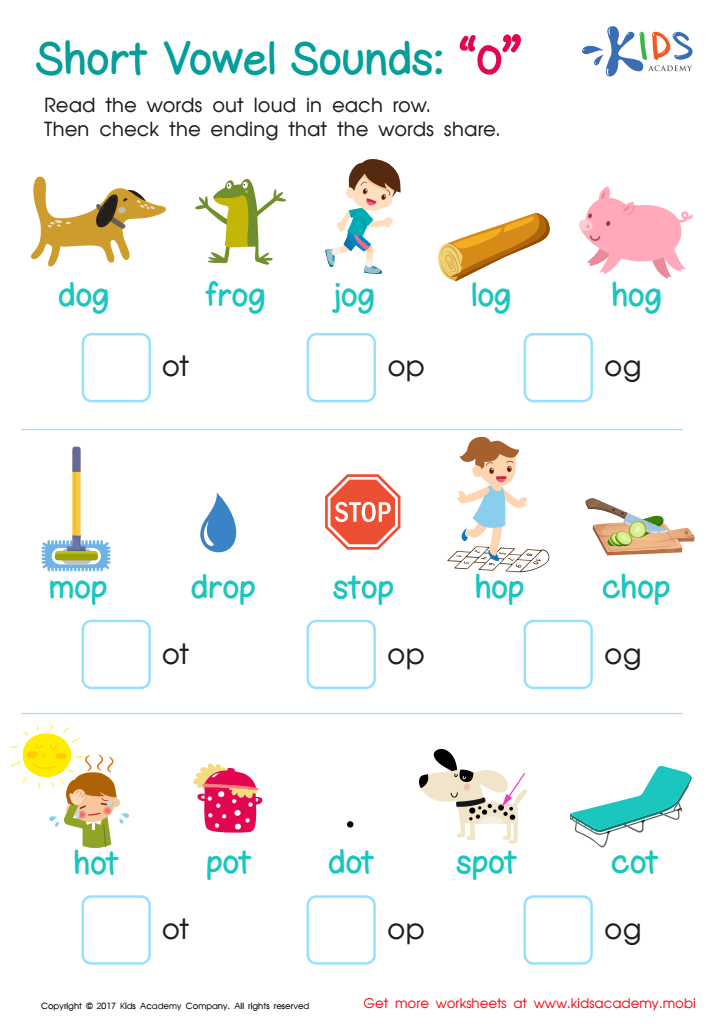

Short vowel Sounds "o" Spelling Worksheet
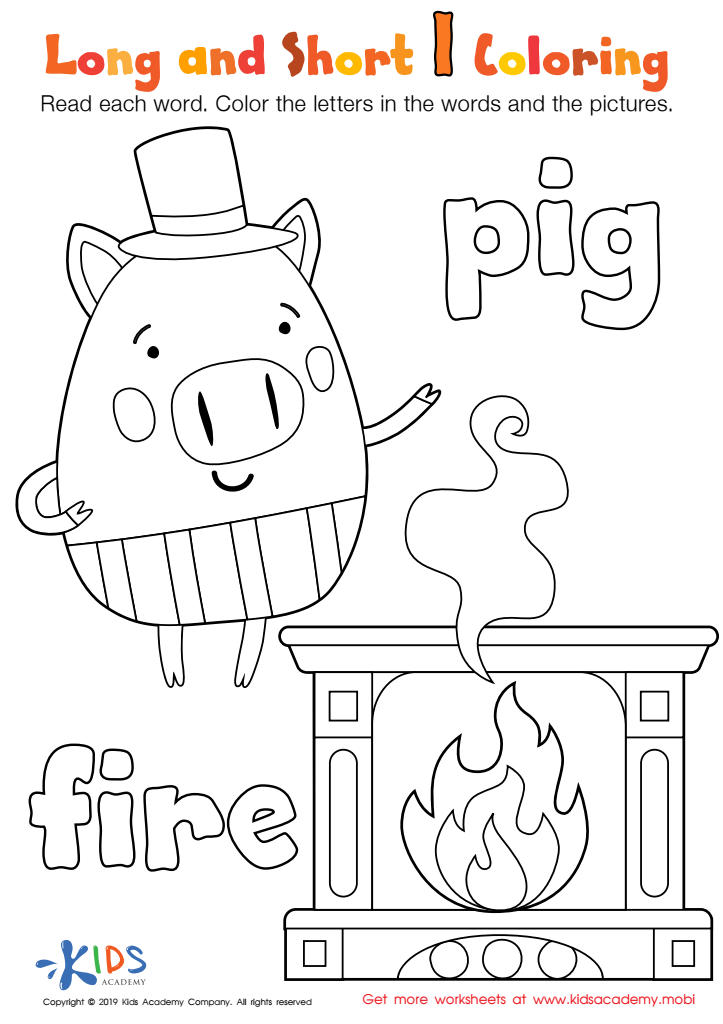

Long and Short I Worksheet
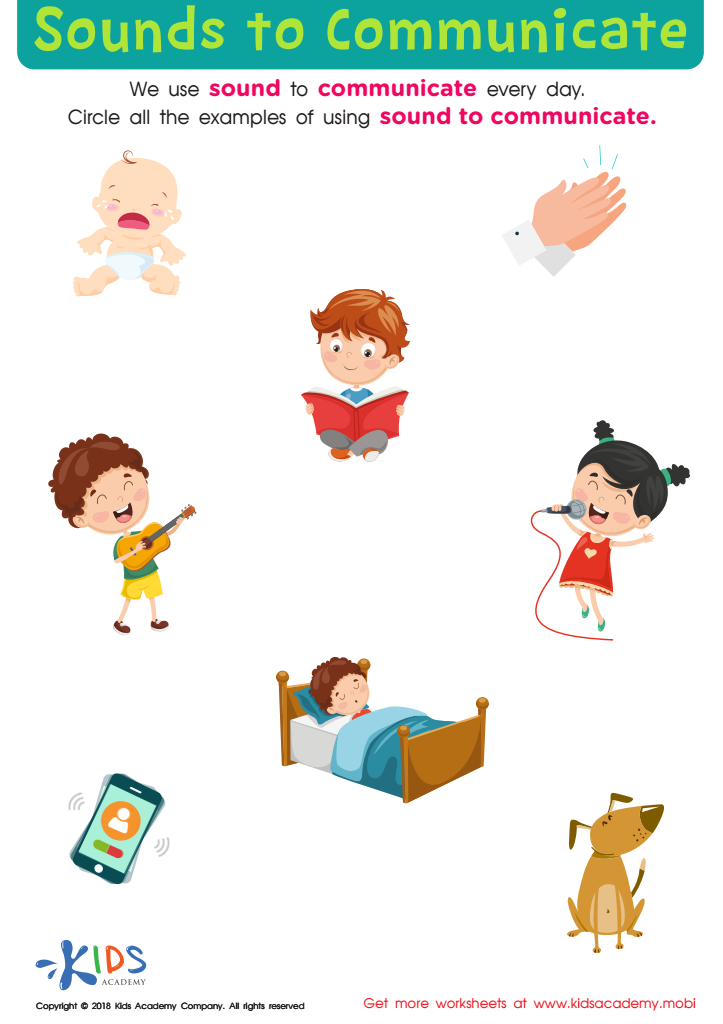

Sounds to Communicate Worksheet
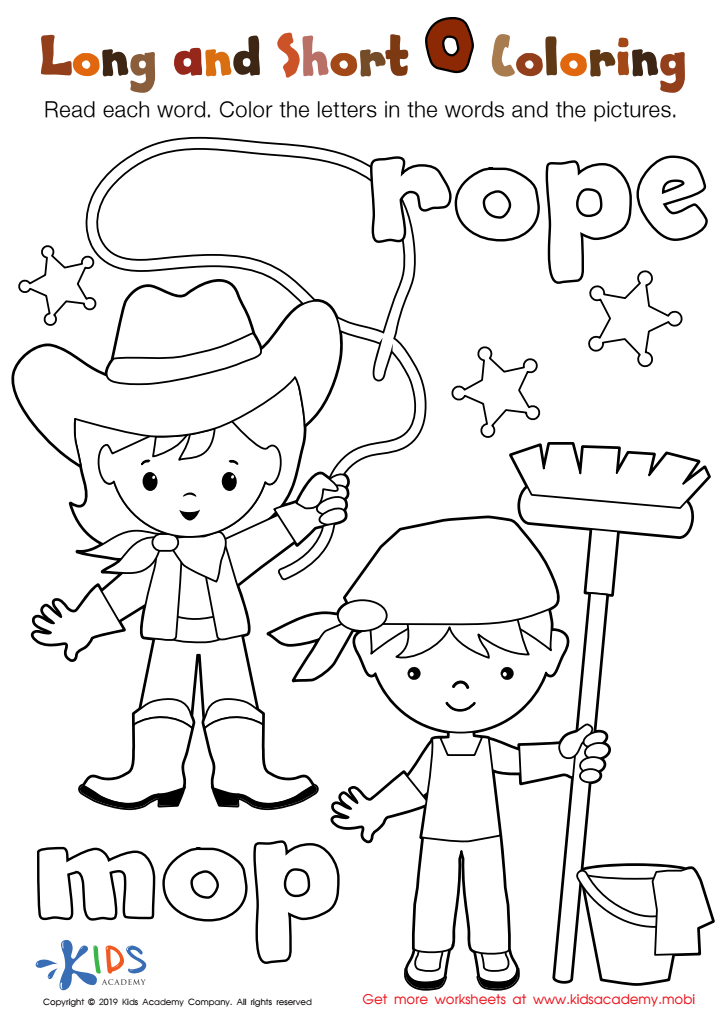

Long and Short O Worksheet
Phonics skills development is crucial for children aged 5-9, as it forms the foundation for reading and writing. During these formative years, children are typically introduced to the relationship between letters and sounds. Phonics instruction helps them decode words, making reading a more accessible and enjoyable process. When students can blend sounds to form words, their confidence grows, enabling them to tackle more challenging texts.
Parents and teachers should care deeply about phonics because strong reading skills are linked to academic success across all subjects. Poor phonics skills can lead to difficulties in literacy, which often translate into challenges in comprehension, writing, and overall academic performance. Early intervention in phonics can prevent long-term literacy issues and cultivate a love for reading.
Moreover, children who master phonics are more likely to become proficient readers and resilient learners. As reading opens doors to a variety of knowledge areas, it also contributes to critical thinking skills, emotional intelligence, and creativity.
In conclusion, emphasizing phonics during ages 5-9 lays a crucial foundation for a child's educational journey, equips them with essential skills, and promotes a lifelong love of learning. Parents and teachers play integral roles in nurturing these abilities, ensuring children have the best chance for future success.

 Assign to My Students
Assign to My Students
















